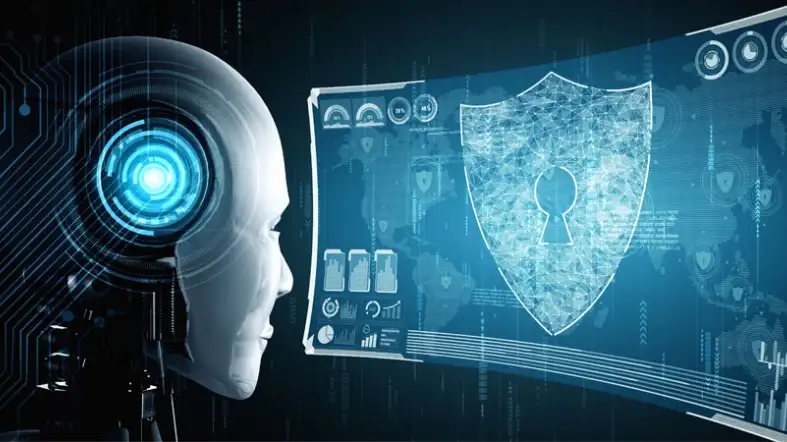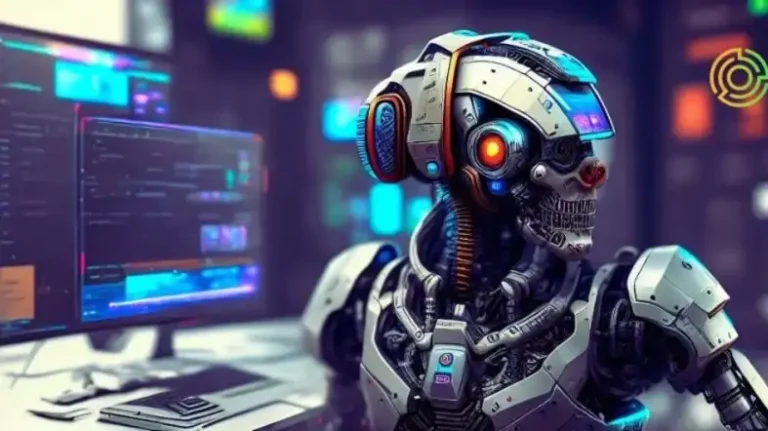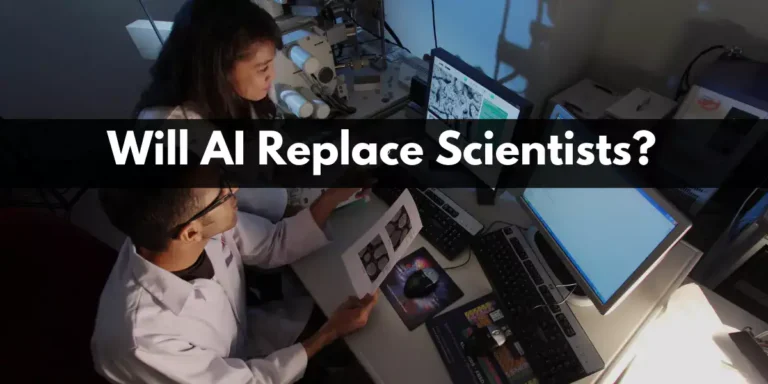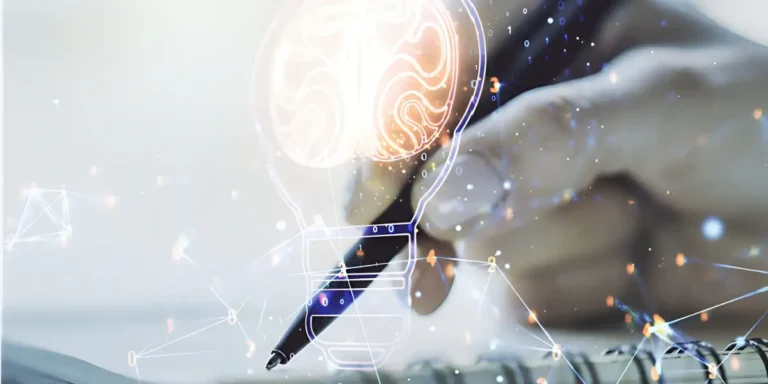While AI can perform certain tasks more efficiently than humans, the unique problem-solving and critical-thinking skills of ethical hackers cannot be replicated by machines.
In this blog post, we will explore the opportunities for ethical hackers in the age of AI, the impacts of AI in the job market of this sector, the required skills for ethical hackers to stay relevant with AI, and the risk of relying on AI In Cybersecurity.

Will AI Replace Ethical Hackers?
No, AI in cybersecurity will not replace ethical hackers. Instead, AI will work alongside cybersecurity professionals to quickly identify and eliminate security threats.
Ethical hacking can be a lucrative and rewarding career with job security, advancement, and a high salary. To start in this field, individuals can prepare for the CEH exam.
What Are The Future Opportunities For Ethical Hackers In The Age Of AI Technology?
AI Security Researcher:
AI security researchers explore the latest trends and developments in AI security. They conduct research to identify emerging threats, develop new security measures, and evaluate existing security protocols.
AI security researchers stay up-to-date with the latest advancements in the field of AI and cybersecurity and apply this knowledge to help organizations protect their AI systems.
AI Security Consultant
As AI security consultants, ethical hackers advise companies and organizations on the security measures needed to protect their AI systems.
They assess potential security risks, identify vulnerabilities, and provide recommendations for improving AI security.
AI Security Auditor:
AI security auditors assess the effectiveness of existing security measures and protocols. They use their skills to test and evaluate the security of AI systems, identify vulnerabilities, and provide recommendations for improvement.
By assessing the security of AI systems, AI security auditors help organizations identify weaknesses in their cybersecurity systems and implement effective countermeasures.
AI-Based Penetration Testing:
With the use of AI technology, ethical hackers can perform penetration testing more efficiently and effectively.
AI-powered tools can be used to identify vulnerabilities in computer systems and networks, allowing ethical hackers to prioritize their efforts and focus on the most critical security weaknesses.
AI-based penetration testing helps organizations identify security weaknesses before cybercriminals can exploit them.
AI-Based Security Analytics:
Ethical hackers can use AI technology to analyze large volumes of security data, identify patterns, and detect anomalies.
This can help organizations to detect potential threats and take proactive measures to prevent cyber attacks. AI-based security analytics can also help organizations identify areas of their cybersecurity systems that need improvement.
AI-Based Threat Hunting:
Ethical hackers can use AI-powered tools to search for and identify potential threats that traditional security systems may miss.
By using machine learning algorithms, ethical hackers can analyze large amounts of data to detect and respond to threats quickly. AI-based threat hunting helps organizations detect and respond to cyber threats in real time.
AI-Based Cyber Defense:
As cyber-attacks become more sophisticated, organizations are turning to AI technology to help defend against them.
Ethical hackers can help develop and implement AI-powered cybersecurity systems that can detect and respond to threats in real time.
AI-based cyber defense systems use machine learning algorithms to detect and respond to cyber threats, making them more effective than traditional cybersecurity systems.
What Are AI Technology’s Impacts on the Job Market For Ethical Hackers?

Automation of Low-Level Tasks
One of the most significant impacts of AI technology on the job market for ethical hackers is the automation of low-level tasks.
AI-powered tools can now identify common vulnerabilities in computer systems, reducing the time and effort required by ethical hackers.
For instance, automated tools can scan for open ports, detect SQL injection vulnerabilities, and analyze network traffic. This can free up ethical hackers to focus on more complex tasks that require human expertise and intuition.
Increased Demand for Specialization
Another impact of AI technology on the job market for ethical hackers is an increased demand for specialization.
With the automation of low-level tasks, ethical hackers need to develop specialized skills to remain relevant in the job market.
For instance, ethical hackers may need to specialize in areas like penetration testing, incident response, or reverse engineering. Specialization can also lead to higher salaries and better job opportunities.
The Emergence of New Threats
AI technology has also led to the emergence of new threats that ethical hackers must contend with.
For example, AI-powered attacks can now mimic human behavior, making them difficult to detect using traditional security measures.
Ethical hackers must develop new skills and techniques to combat these new threats, including the use of AI-powered tools to detect and respond to attacks.
Opportunities for Innovation
Despite the challenges posed by AI technology, it also presents opportunities for innovation in the job market for ethical hackers.
For instance, ethical hackers can leverage AI-powered tools to enhance their ability to detect and respond to threats.
AI technology can also be used to improve the efficiency of security operations, reducing the workload for ethical hackers.
What Skills Are Still Needed For Ethical Hackers In The Age Of AI?

Understand Basic Ethical Hacking Skills
Ethical hacking is an essential skill that an ethical hacker should have. It involves knowing how hackers think and operate to anticipate their next moves.
Common positions that ethical hackers occupy include penetration tester, vulnerability assessor, information security analyst, security consultant, and security engineer.
The position within a company will determine what skills an ethical hacker should have to fulfill their responsibilities.
Know Cryptography and Social Engineering
An ethical hacker should know various cryptography concepts like digital signatures, different types of ciphers, hash algorithms etc.
The techniques such as symmetric cryptography and public key cryptography. Moreover, they should understand human psychology and social engineering.
Master Scripting and Linux Skills
Scripting is a crucial skill to automate parts of your workflow or attack infrastructure. Many attack techniques rely on floods of requests.
Linux skills are essential because most of the servers run on Linux, and an ethical hacker should be able to navigate the command line and scripting.
Learn AI Automation
Ethical hackers need to adapt to identify issues and vulnerabilities continuously. AI is a necessity in ethical hacking activities because black hat hackers constantly change their strategies, tactics, and actions.
AI automation can help ethical hackers to scan networks continuously for flaws to exploit.
Practice with Ethical Hacking Courses
To learn the necessary skills, ethical hackers should consider taking online courses. Some fantastic ethical hacking courses online are available that can prepare for the Certified Ethical Hacker exam.
For instance, the LinkedIn course teaches about common and emerging system threats and helps to practice using tools to identify these threats.
Stay Up-To-Date
To keep up with the constantly changing strategies and tactics of black hat hackers, ethical hackers need to keep their skills updated.
They should read books and articles, attend conferences and webinars, and join online ethical hacking communities. Ethical hackers should also keep up-to-date with the latest trends and technologies, especially those related to AI.
What Are The Potential Risks Of Relying Solely On AI Technology In Cybersecurity?

Risk of Unintended Consequences:
One potential risk of relying solely on AI technology in cybersecurity is the risk of unintended consequences.
AI algorithms can be complex and difficult to understand, and even small errors in programming or input data can have significant consequences.
For example, an AI system designed to detect malware may inadvertently flag legitimate software as malicious, resulting in unnecessary alerts and potential disruption to business operations.
Risk of Over-Reliance on Technology:
Another risk of relying solely on AI technology in cybersecurity is the risk of over-reliance on technology. While AI can be a powerful tool for detecting and responding to threats, it is not a panacea.
An over-reliance on AI can lead to complacency and a false sense of security, leaving organizations vulnerable to attacks that may not be detected by AI systems.
Risk of Cybersecurity Vulnerabilities:
AI systems themselves can be vulnerable to cyberattacks, particularly those that rely solely on automated processes.
Cybercriminals can exploit vulnerabilities in AI systems to gain unauthorized access to sensitive data or disrupt critical systems.
This risk can be mitigated by implementing a comprehensive security strategy that includes human oversight and continuous monitoring.
Risk of Bias and Discrimination:
AI systems are only as unbiased as the data they are trained on. If the data used to train an AI system is biased or discriminatory, the system itself may exhibit those same biases when making decisions.
This can have serious consequences in cybersecurity, where decisions based on biased data can result in false positives, missed threats, or even damage to an organization’s reputation.
Risk of Human Error:
Finally, relying solely on AI technology in cybersecurity can lead to a risk of human error. While AI can automate many tasks, it cannot replace human expertise and judgment entirely.
In some cases, AI systems may generate false positives or false negatives, requiring human intervention to make the correct decision.
FAQs
How Does AI Impact Ethical Hacking?
AI can automate many tasks related to ethical hacking, such as vulnerability scanning and penetration testing.
However, AI currently lacks the creativity and adaptability of human ethical hackers and cannot replace them completely.
Will AI Eventually Replace Ethical Hackers?
It is unlikely that AI will completely replace ethical hackers in the foreseeable future.
While AI can automate certain tasks, ethical hackers are still needed for tasks requiring critical thinking, problem-solving, and creativity.
What are the advantages of using AI in ethical hacking?
AI can help ethical hackers work more efficiently by automating repetitive tasks, identifying patterns and anomalies that may be missed by humans, and analyzing large amounts of data quickly.
How Can Ethical Hackers Work With AI?
Ethical hackers can use AI tools and platforms to supplement their work, such as for automated vulnerability scanning and data analysis.
However, ethical hackers should also understand AI’s limitations and potential biases and use their judgment and expertise to make decisions.
Conclusion
Ethical hackers are still crucial in the battle against cybercrime, notwithstanding AI’s tremendous advancements in the detection and response to cyber threats.
However, AI won’t completely replace human hackers’ aptitude for creativity, intuition, and problem-solving.
Instead, ethical hackers and AI can collaborate to build a stronger defense against cyber attacks.
Future cybersecurity will depend heavily on cooperation between humans and machines.




